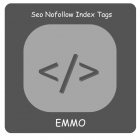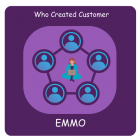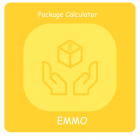SEO Issues in Magento 2 and How Canonical Tags Can Resolve Them

SEO Issues in Magento 2 and How Canonical Tags Can Resolve Them
Magento 2 is a powerful platform for e-commerce, but its SEO performance can be affected by common mistakes like duplicate content, missing metadata, and improper URL structures. These issues can hurt your search rankings, making it essential to identify and fix them promptly. One solution to some of these problems is using canonical tags, which help search engines understand which version of a page should be indexed, improving your site's SEO.
Table Of Content
Common Magento 2 SEO Mistakes and How Canonical Tags Fix Them
Duplicate Content Issues
The Problem: Magento 2 store owners may face duplicate content due to multiple URLs pointing to the same product or category. For example:
www.example/product1 www.example/categoryabc/product1
Both URLs lead to the same product, but one includes the category. Similarly, using filters or sorting options can create more URLs pointing to the same content. This is a problem across all eCommerce platforms, not just Magento 2.
Search engines treat each URL as a separate page, causing confusion on which page to prioritize. When search engines index multiple URLs for the same content, rankings can drop. This can even lead to penalties for duplicate content.
The Solution: To solve this, use canonical tags in Magento 2. A canonical tag signals to search engines which page is the "master" version, helping them prioritize it and ignore duplicate URLs.
For instance, if there are five URLs pointing to the same product, add a canonical tag to the main product URL. This helps search engines know which page to prioritize, whether it's the main product URL or a filtered version.
Mismanaging Pagination
The Problem: When you have hundreds of products, pagination becomes necessary. Displaying all products on a single page would overwhelm users and search engines. However, if paginated pages are not optimized, search engines may struggle to crawl them efficiently. This can waste your crawl budget and cause issues like poor rankings and content cannibalization.
The Solution: Add canonical tags to indicate which page search engines should prioritize, whether it's the main category page or the first page in the pagination series. Additionally, use the rel=prev and rel=next tags to help search engines understand the order of paginated pages.
Implementing these tags can be tricky without coding experience, but using a Magento 2 Canonical URL Extension can simplify this process.
Incorrect Canonical URLs for HTTPS and WWW Versions
The Problem: Magento 2 store owners sometimes face duplicate content issues due to different versions of the same page, like with HTTPS vs. HTTP or www vs. non-www URLs. This issue occurs because search engines see these as separate pages.
The Solution: To resolve this, use canonical tags to indicate which version of the page should be considered the master. For example, set the canonical tag to https://www.example.com to avoid duplicate content caused by variations in the URL format. Maintaining consistent URL structures helps prevent this problem.
Not Using Canonical Tags on Category Pages
The Problem: It's common for the same product to appear in multiple categories, leading to duplicate content issues. Without a canonical tag, search engines struggle to determine which version of the product page should be prioritized.
The Solution: While Magento 2 offers built-in options for adding canonical tags to category pages, using a third-party extension can provide additional functionality. This ensures that only one category page gets prioritized, avoiding SEO penalties for duplicate content.
Ignoring Canonical Tags on CMS Pages
The Problem: Magento 2 store owners often focus on product and category pages while neglecting CMS pages, such as the homepage, "About Us," or blog pages. These pages are critical for SEO but can suffer from duplicate content issues if canonical tags are not applied.
The Solution: Canonical tags should also be applied to CMS pages to consolidate link equity and ensure that only the optimized version of these pages is ranked. This improves overall SEO and provides a better user experience by consolidating content and prioritizing the most relevant versions.
Final Thoughts
Canonical tags are an essential tool for overcoming common SEO mistakes in Magento 2. While Magento 2 provides some built-in functionality for adding canonical tags, it's often more efficient to use third-party extensions like the Magento 2 Canonical URLs extension for greater control and customization.
By applying canonical tags properly, you can avoid penalties for duplicate content, improve SEO performance, and enhance user experience. For store owners looking to optimize their SEO strategy, using canonical tags effectively is a critical step in driving more organic traffic.
How to Set Up and Optimize Product Feeds in Magento 2
Tip
To enhance your eCommerce store’s performance with Magento, focus on optimizing site speed by utilizing Emmo themes and extensions. These tools are designed for efficiency, ensuring your website loads quickly and provides a smooth user experience. Start leveraging Emmo's powerful solutions today to boost customer satisfaction and drive sales!
FAQs
What Are Duplicate Content Issues in Magento 2?
Duplicate content occurs when multiple URLs lead to the same product or page, confusing search engines about which version to rank. For example, a product appearing in different categories or with varying filters creates duplicate URLs. This can hurt SEO and rankings.
How Do Canonical Tags Fix Duplicate Content Issues in Magento 2?
Canonical tags help search engines identify the main, original version of a page, guiding them to prioritize it. By adding a canonical tag to duplicate pages, such as a product appearing in different categories, search engines know which page should be ranked, improving SEO.
What Is the Problem with Pagination in Magento 2?
Pagination can create issues where search engines struggle to crawl multiple product pages efficiently. Without proper tags, search engines may misinterpret the relationship between paginated pages, wasting crawl budget and potentially hurting rankings.
How Can Canonical Tags Help with Pagination in Magento 2?
Adding canonical tags to paginated pages ensures that search engines understand which page to prioritize, whether it’s the main category page or a specific page in the pagination series. This prevents issues with crawling and content duplication across multiple pages.
Why Do HTTPS and WWW Versions of a Page Cause SEO Issues?
If your website has multiple versions, such as HTTPS vs. HTTP or www vs. non-www, search engines may treat them as separate pages, causing duplicate content issues. This can lead to rankings being split across versions and negatively affect SEO performance.
How Do Canonical Tags Resolve HTTPS and WWW Duplicate Content Issues?
By using canonical tags, you can specify the preferred version of a page (e.g., `https://www.example.com`). This helps search engines understand which URL to prioritize, eliminating the risk of duplicate content caused by HTTPS vs. HTTP or www vs. non-www variations.
Why Is It Important to Use Canonical Tags on Category Pages?
Category pages can often show the same product in multiple categories, leading to duplicate content issues. Adding canonical tags to these pages helps ensure search engines know which version to prioritize, improving overall SEO and preventing penalties from duplicate content.
How Do CMS Pages Affect SEO and How Can Canonical Tags Help?
Neglecting CMS pages like the homepage or "About Us" can lead to duplicate content problems if canonical tags are not used. By applying canonical tags to CMS pages, you can consolidate link equity and ensure that search engines rank the most relevant version of each page.
What Is the Role of Third-Party Extensions in Managing Canonical Tags in Magento 2?
While Magento 2 provides basic canonical tag functionality, third-party extensions offer more advanced features and greater control. These extensions can automate the process, ensuring that all pages, including product, category, and CMS pages, are correctly tagged, improving SEO performance.









